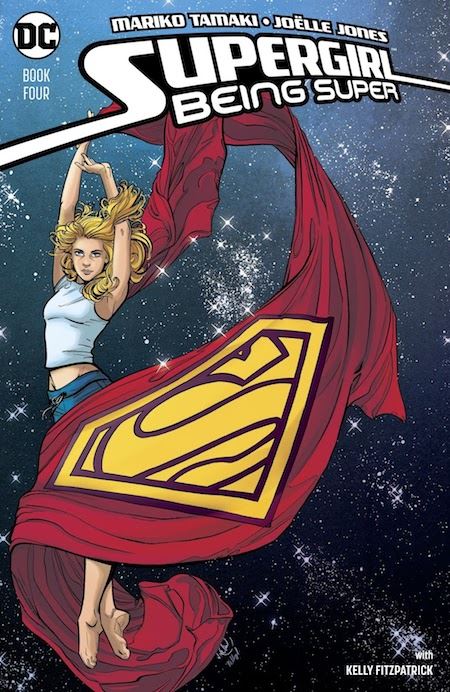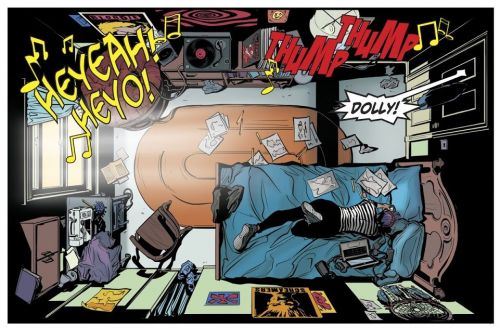Supergirl: Being Super #4 Review
By Zak Edwards
August 7, 2017 - 14:04
Writer(s): Mariko Tamaki
Artist(s): Joëlle Jones
Colourist(s): Kelly Fitzpatrick
Letterer(s): Saida Temofonte
Supergirl: Being Super, from what I can tell, doesn’t have a
 |
| Supergirl: Being Super #4. Art by Joëlle Jones and colours by Kelly Fitzpatrick. |
Supergirl: Being Super could easily go down as this year’s sleeper hit. A beautiful origin story that perfectly blends the familiarity of the Superman myth with a modern sensibility, one that is disinterested in hitting the usual beats of a superhero origin story. Tamaki’s vision simply isn’t cut from the same cloth. Supergirl doesn’t even don a costume. She doesn’t punch as
If the series has a weak point, it is Tan-On, a Kryptonian scientist who was sent to Earth to study it, only to be captured and tortured to figure out how to turn him into a battery. Despite the extra space given in these super-sized issues, he still comes across as one-dimensional. Even Tamaki struggles to figure out his motivations, using Supergirl to voice concerns over his thought process. He is set up to be a complicated tie to Kara’s former home but the dilemma she undergoes while thinking through his ideas comes across as insincere.
Thankfully, he doesn’t actually take up that much page space because the series is much more interested in Kara and her friend Dolly than any sort of rogues gallery. Her fight with Tan-On is always grounded as an internal struggle outwardly expressed, and the moment she is finished with that struggle, Tan-On is defeated, somewhat unceremoniously.
That isn’t to say the issue is without action. In fact, it’s mostly action, but the action is grounded in horror and internal struggle, which means the actual punching never really happens. Instead, artist Joëlle Jones illustrates a fight with flashbacks, pulling so far back during the final moments of the confrontation that the outcome and action
 |
| Joëlle Jones & Kelly Fitzpatrick's detailed art helps ground the story and make the superhuman details feel more, well, alien. |
Related Articles:
Review: Supergirl #14
Supergirl #20
Review: Supergirl #13
Review: Supergirl Annual #1
Supergirl: Being Super #4 Review
Supergirl: Being Super #2 Review
Supergirl #11 Review
Supergirl #10 Review
Review: Supergirl #9
Review: Supergirl Being Super #3
